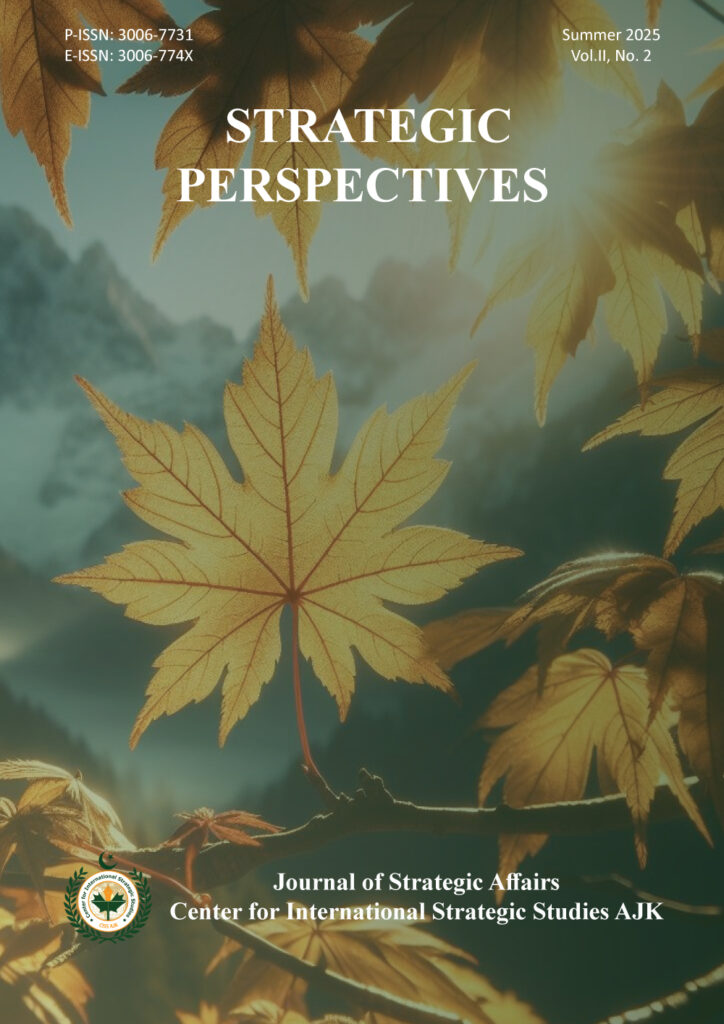Vol. II No. 2 (2025): Strategic Perspectives, Summer 2025
Rise of Populism in the Post-Truth Era: A Case Study of Modi’s Regime
Saad Riaz and Junaid Khan Jhandad

Published June 30, 2025
Abstract
India, the world’s largest democracy, has witnessed a surge in Hindu majoritarian politics due to populist leaders like Narendra Modi’s exploitation of this domain to consolidate their power. Modi has relied on Hindutva ideologies, benefiting from the Bharatiya Jannata Party-Rashtriya Swayamsevak Sangh (BJP-RSS) alliance, especially following the decline of the Congress. Three key events shaped the current political environment: the demolition of the Babri Mosque, the revival of Golwalkar’s teachings, and the rise of media-driven ‘post-truth’ politics. In the post-truth era, political discourse has shifted, allowing for easier manipulation of facts through propaganda, fake news, and populist rhetoric, as the public is more inclined towards emotions and beliefs rather than facts. Despite economic challenges and post-2019 failures in delivering performance, BJP has continued to thrive. The paper explores the rationale behind Modi’s rise and manipulation of the traditional political structure, solely depending on right-wing politics in the post-truth age. Despite growing complexities, failure to fulfil promises, and deepening divisions between the rich and the poor, as well as Hindus and Muslims, he has skillfully manipulated vulnerabilities to turn the tide in his favour. It also explores the factors behind Modi’s re-election, examining the role of right-wing politics, media influence, and populism in shaping modern Indian politics in the post-truth era.
Key Words
Populism, Post-Truth Era, India, Elections 2024, BJP, Hindu Nationalism
